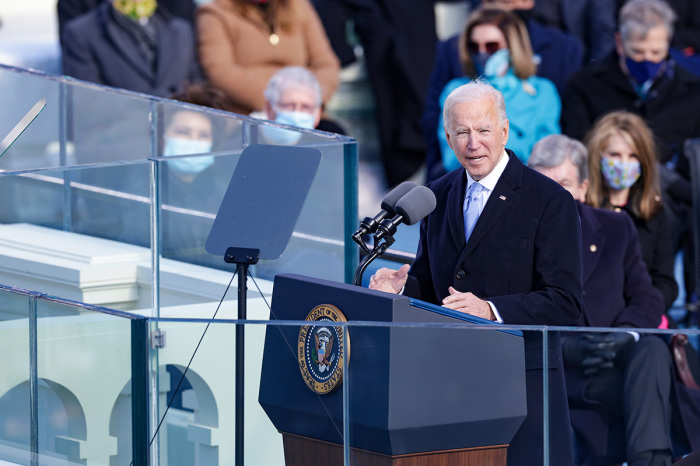Nearly two-thirds of white evangelicals don't believe Biden's election was 'legitimate,' poll finds

Nearly two-thirds of white evangelical Protestants do not believe that President Joe Biden was legitimately elected, according to data from the public policy research organization American Enterprise Institute.
Recently, AEI’s Survey Center on American Life released findings from its January 2021 American Perspectives Survey. The research is based on interviews with 2,016 adults from all 50 states and the District of Columbia. The survey focused on the post-election political views of Americans and was announced earlier this month.
When asked if they think President Biden’s victory in the 2020 presidential election was “legitimate or not legitimate,” 63% of white evangelical Protestant respondents responded that his victory was "not legitimate."
For white evangelicals who identified as Republican, the percentage of those who did not view Biden’s win as legitimate grew to 75%, according to a spokesman for the center.
The spokesman also told The Christian Post that the total number of white evangelicals surveyed for the report was 343. There were not enough white evangelical respondents who identified as Democrats to draw any conclusions about that subset.
The center’s director, Daniel A. Cox, a former research director of the Public Religion Research Institute, wrote an analysis of the survey's findings, published Feb. 11.
“The January 2021 American Perspectives Survey finds evidence that Americans are divided over not only how they feel about the 2020 election but also how they perceive the legitimacy of Biden’s win,” Cox explained.
“Political conspiracy theories, including QAnon, have not disappeared after Trump’s defeat, and a significant number of Americans condone the use of violence in the face of political failures.”
The survey found that 66% of Republicans surveyed don't believe Biden's election was legitimate, while 24% of Independents and 2% of Democrats said the same.
The survey data drew attention from NPR, which ran with the headline: “New Survey Shows 3 In 5 White Evangelicals Say Joe Biden Wasn't Legitimately Elected.”
There has been much emphasis placed on white evangelicals' views in recent years because conservative evangelicals were a major voting bloc for President Donald Trump in 2016 and 2020.
The AEI data comes after Trump pushed claims that targeted voter fraud impacted the outcome of the 2020 race, a claim many of his supporters believe.
According to Cox, the survey found that 65% of all respondents believed that Biden’s election win was legitimate, while 31% of respondents did not believe it was legitimate.
“Amid ongoing false claims that the 2020 election was rife with voting irregularities, a large share of the public believes there was widespread fraud in the 2020 presidential election,” wrote Cox.
This included 29% of respondents saying that the statement “there was widespread fraud in the 2020 election” is either mostly or completely accurate.
The survey found a partisan divide, with 65% of Republican respondents saying they believe widespread voter fraud occurred, while 22% of independents and 2% of Democrats agreed.
There has been much debate recently about how influential Christian nationalism, a term used to describe advocates for fusing a conservative cultural version Christianity with American civic life, is in conservative Christian circles.
According to notable academic researcher Andrew Whitehead, while Christian nationalists can be found in all sectors of society, evangelical Protestants are the most likely to support its goals.
In a webinar held last month, Whitehead expanded on research he conducted with Samuel L. Perry, a sociology professor at the University of Oklahoma.
“We see that almost 80% of evangelical Protestants are at least accommodators or ambassadors of Christian nationalism, so very prevalent,” said Whitehead at the time.
“But even in mainline Protestantism, we see that over 30% are accommodators and just under 20% are ambassadors. So half of mainline Protestants in the U.S. are, again, friendly towards Christian nationalism.”
But John Stonestreet and Timothy D. Padgett of the Colson Center for Christian Worldview argued that Christian nationalism is being used as “a scare label to dismiss any policy or person more conservative than whoever is using the term.”
“… we’re all but guaranteed for the near future that anything vaguely traditional or moral, and any appeal to anything higher than the latest cultural fad, will be smeared with this label,” they wrote in a column for BreakPoint. “It’s silly. Even more, it’s dangerous. Even so, Christians must not abandon the public square just because people say mean things about us.”




























